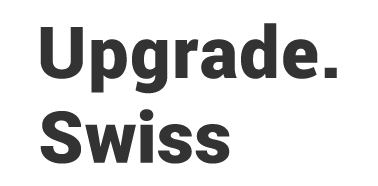This website uses cookies so that we can provide you with the best user experience possible. Cookie information is stored in your browser and performs functions such as recognising you when you return to our website and helping our team to understand which sections of the website you find most interesting and useful.

How does the architecture of a successful change look like? With which design repertoire do we manage change? And what do managers drive who see themselves as “trainers of the organization”?
Transformation Design
For our clients, transformation means above all building the future organizational capabilities we need to achieve our strategic goals. Therefore, transformation is not finite, but a continuous challenge.
These two basic assumptions guide us when we are designing lean and effective transformation processes.
With our Transformation Design Canvas, we use a proven universal grammar to identify the essential levers and to develop the most effective overall architecture of the transformation process. This includes learning content, methods, transformation tactics, intervention formats and roadmaps. The leading question is: For which challenges should we build up which corresponding capabilities and how should this be implemented?
Leading Transformation
In transformations we understand the management or senior executives as “trainers of the organization”. Based on our experience organisational changes only succeed when new capabilities are developed – transformation processes are learning processes. Leaders shape and fuel the learning of the organisation. In the sense of “Train the Trainer” we teach, learn and test together with the managers how to smartly build up the respective repertoire.
Transformation management is thus a leadership capability that needs to be established as the “training of new skills” becomes a new routine.
Transformation Services
Enriching the transformation with a qualified pool of resources and orchestrating it in a targeted manner is a challenge. This applies not only to intervention formats and vessels, but also to content and materials. Our clients appreciate our tailor-made transformation services, which meet the highest professional requirements, even in their breadth for large learning groups (http://upgrade-solutions.ch/). Our aim is not only to strengthen mechanical transformation skills but also to expand mindsets and habits that are linked to expanding new capabilities.
In transformations we look at the following leading questions, which are regularly difficult to achieve in change projects:
- Transparency & clarity in the process: How can we ensure that the majority of employees are sufficiently oriented about why we want to do what when and how, without always having to carry along all the ambiguities and open points?
- Quality & Precision of Decisions: How do we manage to achieve crystal-clear decisions in a confusing field of different stakeholders and power groups within a useful period of time and that these decisions are being implemented and followed?
- Participation & Involvement: How do we use the knowledge, experience and creativity of the people in the organization or company in times of uncertainty and sometimes fear? How do we use the considerable energies that are now released in a predominantly constructive and as little confrontational manner as possible.
- Balance of words & deeds (think & act, prepare & perform, start & jump): In essence, transformation management is about implementation, about achieving and moving things forward. It depends on deeds, not so much on words. The core question of the management team is therefore: How do we manage to get things moving and achieve visible success, visibly towards our customers and stakeholders, towards the board of directors and owners, but also towards our colleagues. To ensure that we remain credible and act with integrity: “announcements” are good – visible “making” is better. But how?
- Change Skills, Habits & Mindsets: Today we are talking about the development of the internal organization. Transformation is not finite per se. Tomorrow another transformation topic is on the horizon? Most likely. The question that responsible leadership teams are asking themselves today: How can we better anchor agility, willingness to change, curiosity and opportunity orientation with regard to a new culture and in the individual skills of our organization? How do we get to the potential and how do we create sustainable movement that reaches minds and hearts?







